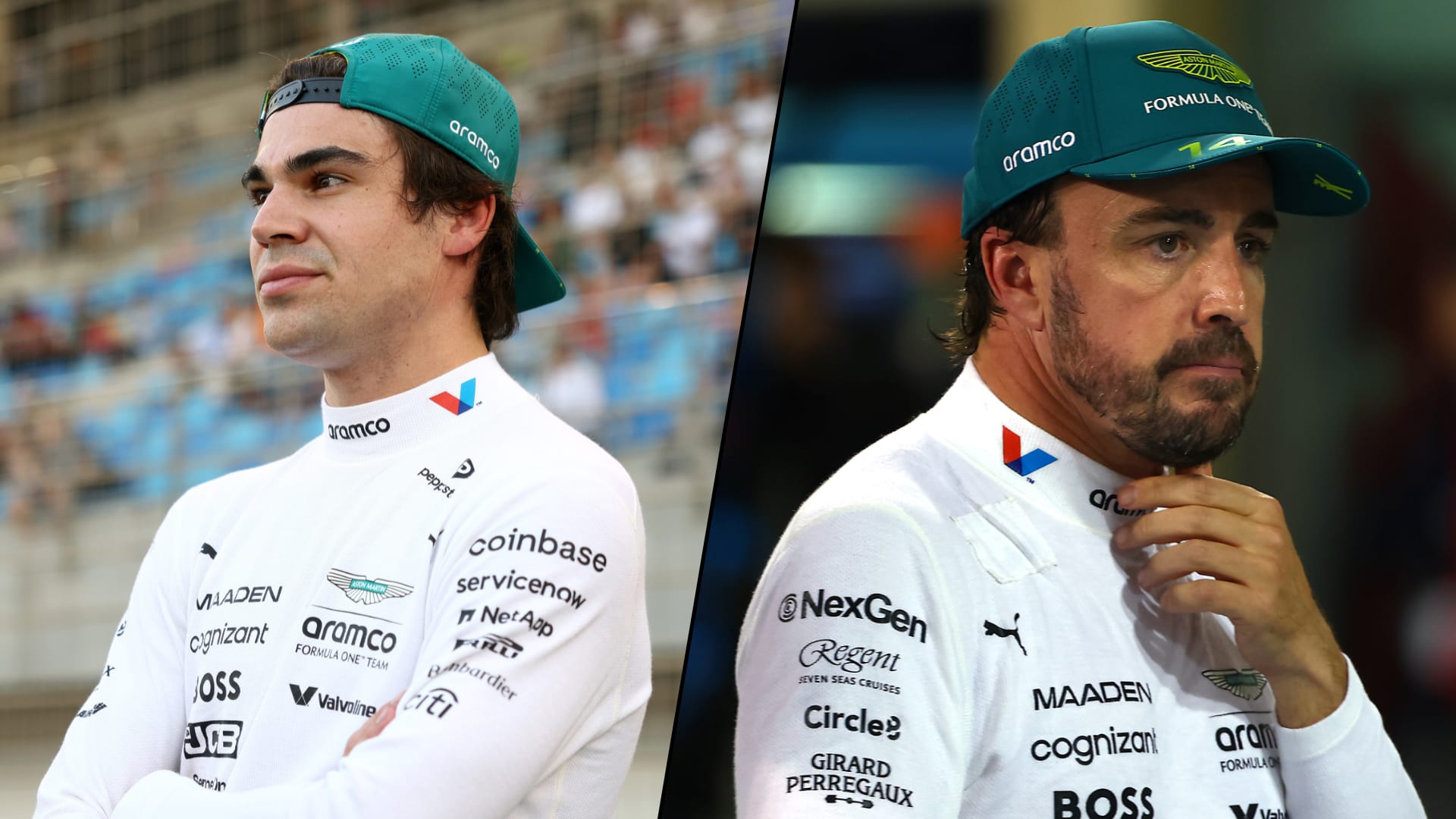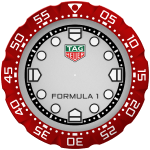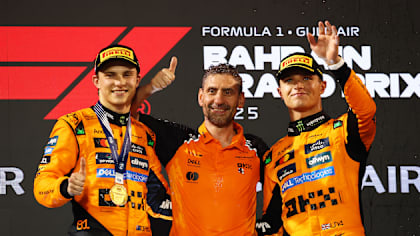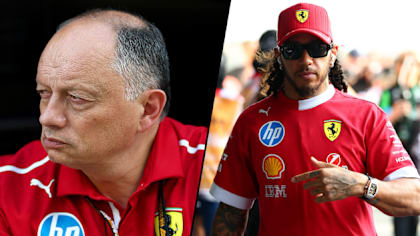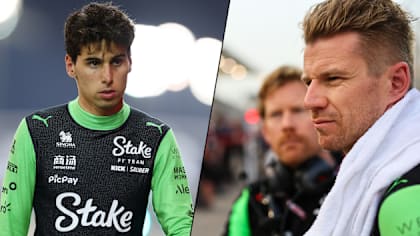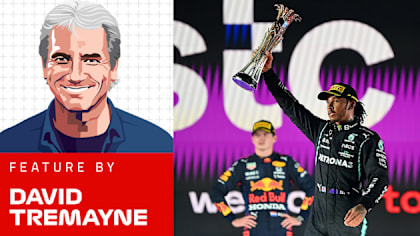18 - 20 April
Feature
8 amazing facts about Schumacher’s legendary F1 debut
Share
Flashback to August 23 1991, and a fresh-faced German driver is set to make his Grand Prix weekend debut in Belgium with Eddie Jordan’s rookie F1 team. Not everyone was familiar with the name ‘Michael Schumacher’ ahead of that race in Spa, but they certainly were after it. As the man who’d go on to become the most successful driver in history celebrates his 50th birthday, we present eight lesser known facts about what remains one of the most revered debuts in history…
1. A white lie helped him get his chance
When Jordan driver Bertrand Gachot found himself in trouble with the law over an altercation with a London taxi driver in the middle of the ’91 season, the Silverstone-based team found themselves with a seat to fill ahead of the Belgian Grand Prix. Stefan Johansson was Team Principal Eddie Jordan's preferred option, but the Swede wanted paying, so in the end it was 22-year-old rookie Michael Schumacher - a Mercedes-Benz sportscar driver - who got the drive - but only after a financial agreement had been struck with Silver Arrows chiefs and his manager Willi Weber had indulged in a spot of creative truth bending.
“Eddie wanted to know if he had ever driven at Spa, so I told him ‘I think about 100 times’, which was a complete lie,” Weber recounted some years later. Schumacher has since insisted that Weber hadn’t lied so much as been mistaken about where his charge had previously raced, but either way, it certainly didn’t hurt his chances - quite the opposite. "I was concerned enough," Jordan admitted in his autobiograpy An Independent Man, "to think that I probably would have preferred Stefan to drive the car had I known that Michael had not been there before."
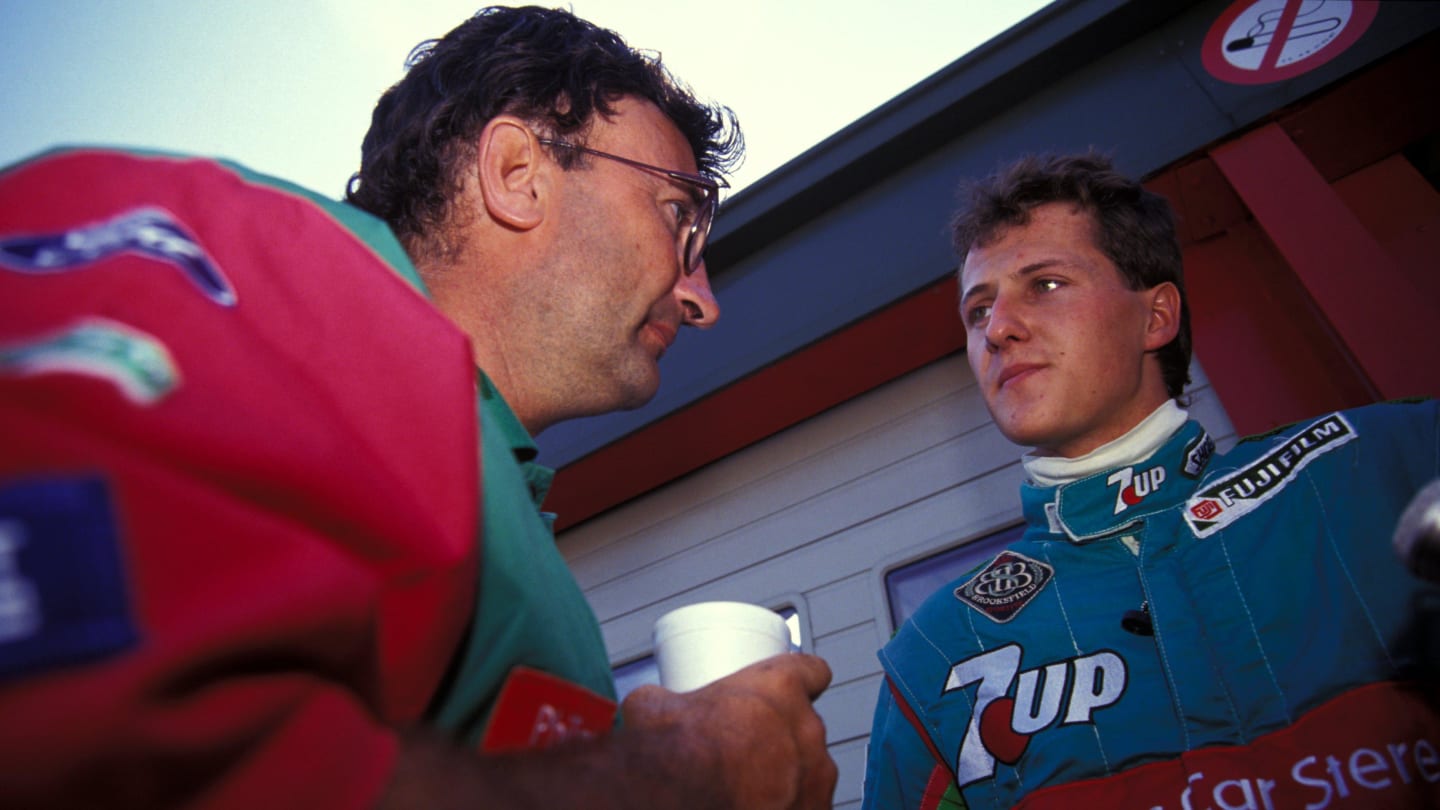
Michael Schumacher (GER) Jordan talks with Eddie Jordan (IRL) Jordan Team owner. Formula One World Championship. Belgium Grand Prix, Spa, Belgium. 25 August 1991.
2. He drove an F1 car for the first time just days before the race
As a sportscar driver, Schumacher had been used to handling 900bhp in Mercedes’ 5-litre turbo V8 Group C monster, but in single-seater terms his experience was limited to Formula Three (he won both the German championship and the prestigious Macau Grand Prix in 1990) and a one-off Japanese F3000 drive (where he finished second). To bring him up to speed with F1 machinery, a test was hastily organised at Silverstone’s South Circuit to help him get acquainted with Jordan’s Ford-powered 191.
“He only did about 20 laps, but his fastest lap was as good as we’d ever done at that circuit,” said Jordan tech chief Gary Anderson. As Schumacher would later recall: “I still remember [Jordan team manager] Trevor Foster coming to me and saying, 'Michael, calm down, slow down, this is the car you're going to race on the weekend, so don't break it!'"
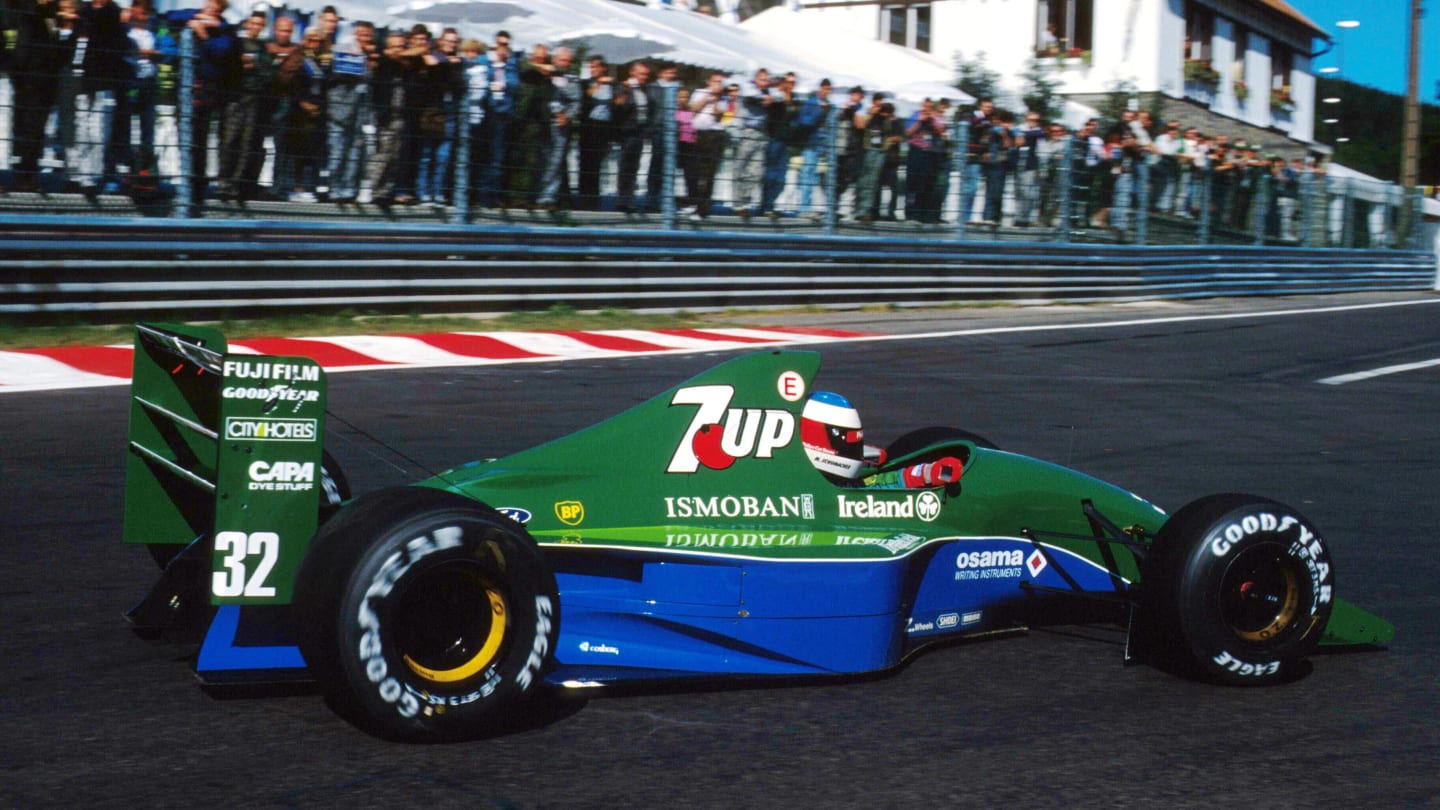
Bertrand Gachot's replacement driver was Michael Schumacher (GER), Jordan 191, for the Belgian Grand Prix, Spa, 25 August 1991
3. He learned the track on a fold-out bicycle
To help his rookie team mate, Jordan’s lead driver Andrea de Cesaris - by then a veteran of 165 Grand Prix starts - was asked to take Schumacher around the classic Ardennes track in a road car. However, the passenger ride never happened, with the experienced Italian instead simply explaining which gears to use in the various corners. To make amends Schumacher, who hailed from the town of Kerpen, not far over the Belgian border in Germany, pulled a fold-out bicycle from the boot of his company Mercedes and pedalled a few laps.
“[The bike] only had tiny wheels, it must have taken him forever,” Jordan's head of marketing Mark Gallagher would remember. “But he wanted to learn the circuit in every way that he could.” One thing's for sure: Schumacher would have been left in no doubt as to the true steepness of Eau Rouge...
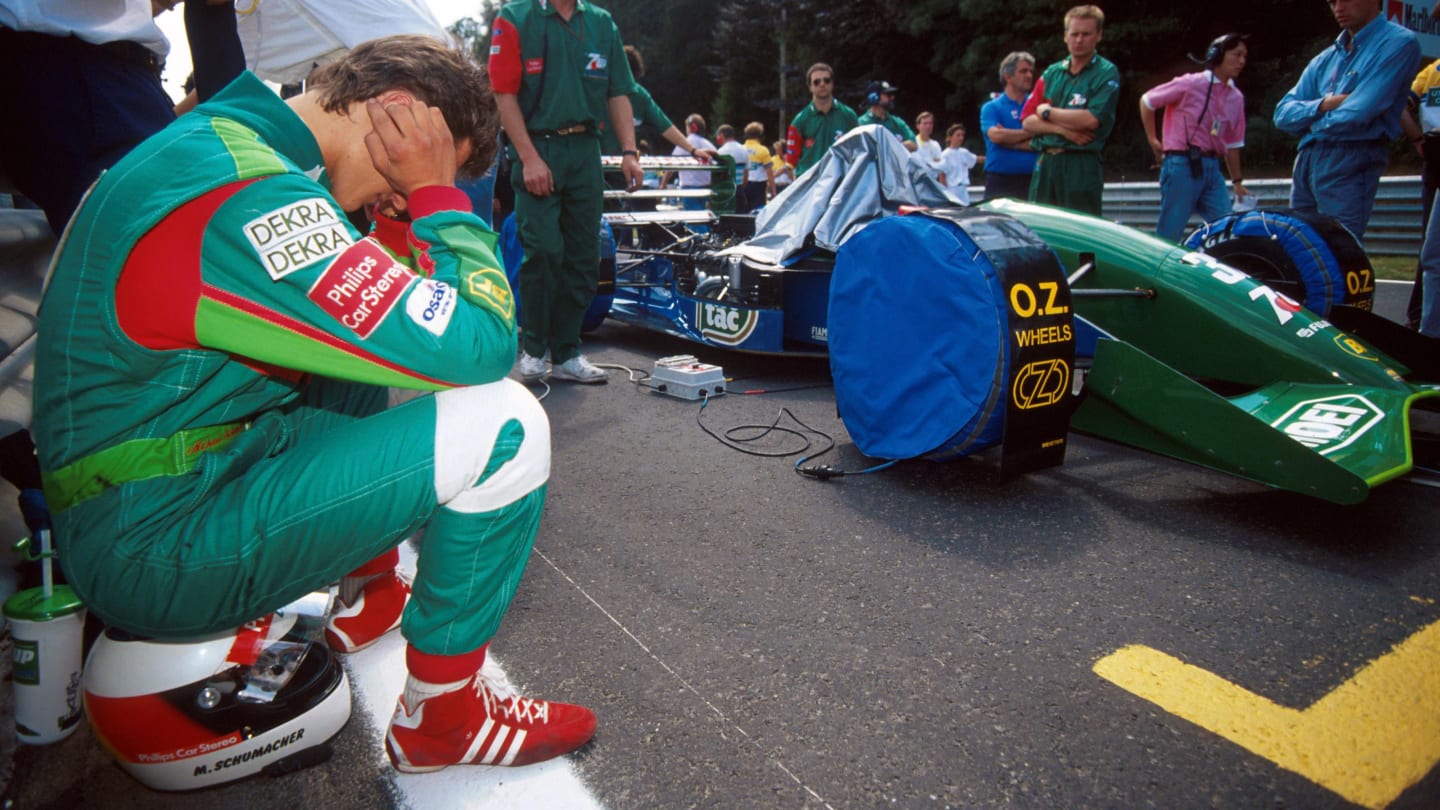
Michael Schumacher (GER) attempts to block himself from the frantic grid activity to concentrate on making his Grand Prix debut from seventh on the grid in the Jordan 191. Belgian Grand Prix, Spa-Francorchamps, 25 August 1991.
4. He stayed in a youth hostel
He’d go on to become the most successful, most famous and most well-paid driver on the planet, but for his first Grand Prix weekend, Schumacher’s accommodation was decidedly unglamorous. “There was no hotel booking for us, so we went to a youth hostel,” manager Weber recalled. “There were two small beds, and in the middle was the toilet and the basin. But I think we would have slept under the truck, you know.” “I didn't really mind,” Schumacher told Autosport some years later. “For me it didn't matter too much.” Indeed, what was important was how he performed on track…
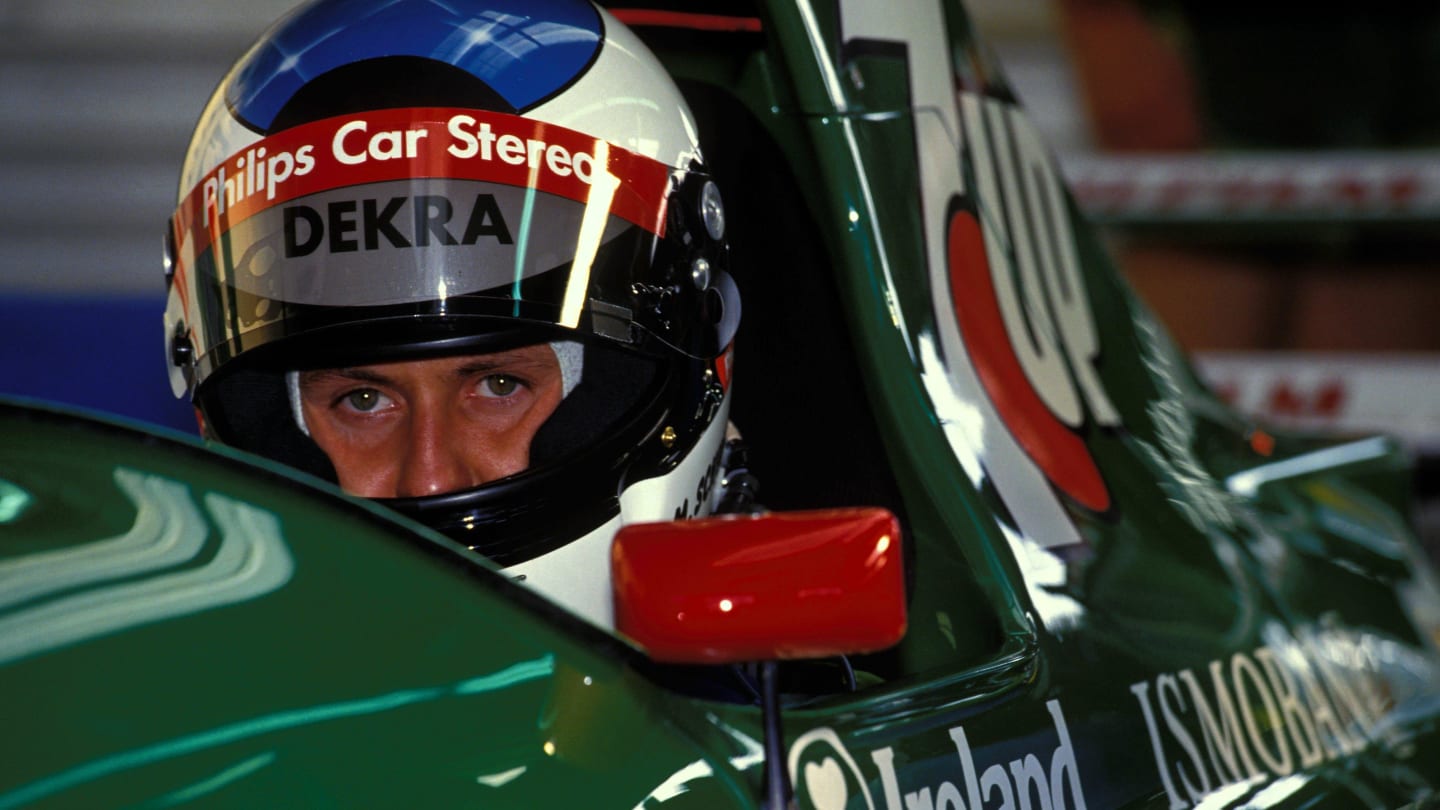
Michael Schumacher (GER) Jordan 191. Formula One World Championship. Belgium Grand Prix, Spa, Belgium. 25 August 1991.
5. He out-qualified his experienced team mate by four places
Jordan’s 191 wasn’t just a good looking car, it was also a very capable car – but even so it was a big surprise to see Schumacher so high up the order, so quickly. In first practice he finished 11th, three positions and half a second back from De Cesaris - but it would be the last time that weekend he’d be behind the Italian, who was rightly dumbfounded by his new team mate’s pace.
“Straight away he was as quick as me,” the five-time podium finisher recollected to ESPN. “My engineer, Gary Anderson, came to me and said: 'Look, Michael is taking Blanchimont flat and you're not. You have to take this corner flat'. For me it was a very demanding weekend!"
Schumacher ended his first day with the eighth-fastest time, but improvements the following day (allied to Riccardo Patrese’s demotion for a technical infringement) lifted him to seventh on the grid behind only the rapid McLarens, both Ferraris, Mansell’s Williams and Piquet’s Benetton. A remarkable achievement, but the newcomer might have been higher still had potentially quicker efforts not been spoiled. De Cesaris, meanwhile, ended up 11th, four places and seven-tenths down on his new team mate...
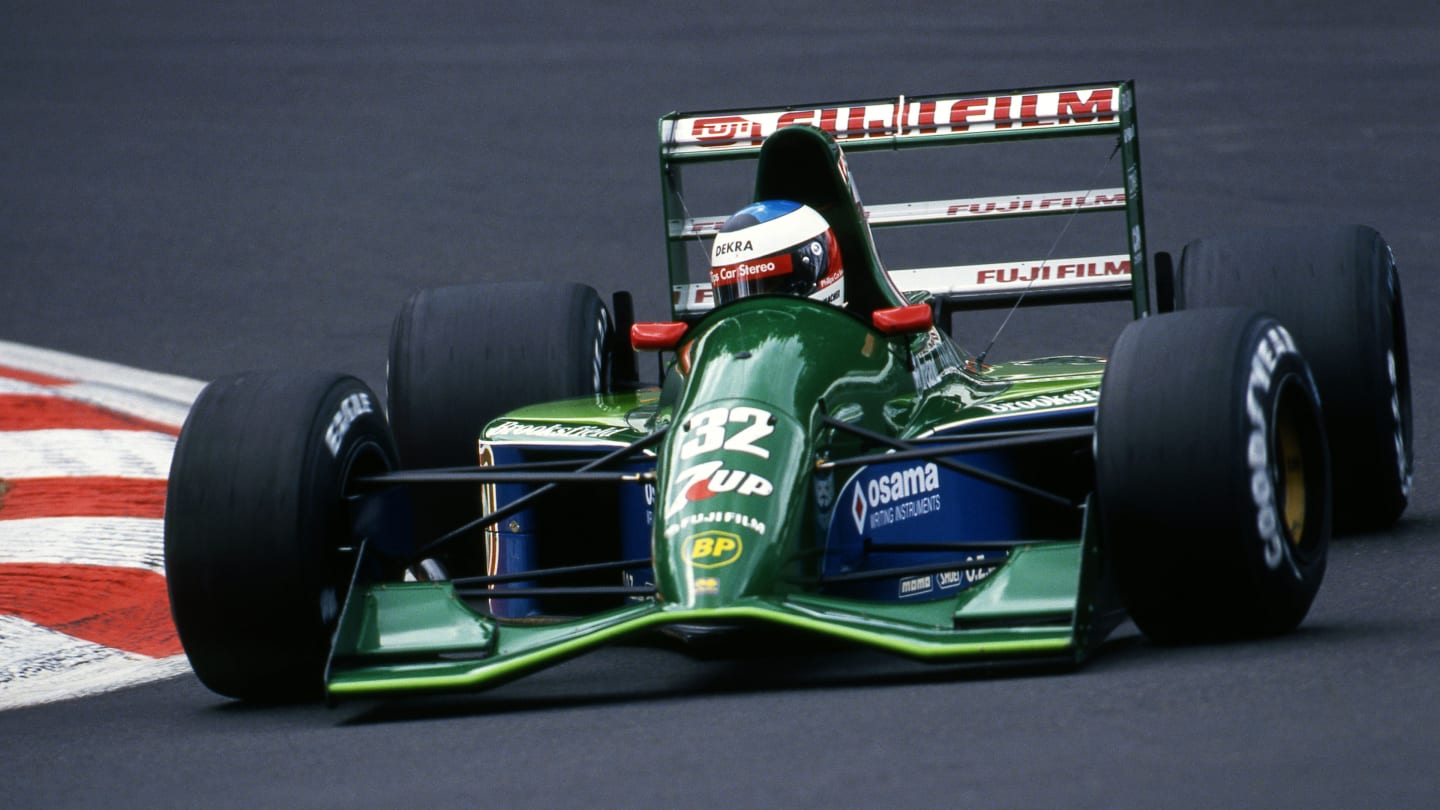
Michael Schumacher (GER) Jordan 191. Formula One World Championship, Rd11, Belgian Grand Prix, Spa, 25 August 1991.
6. His race only lasted a few hundred metres
After his qualifying heroics, the watching world eagerly anticipated what Schumacher might achieve in the race - and things initially looked good as he survived a slightly hairy lock-up on cold tyres at La Source (“I was thinking, 'Oh I'm going to hit the guy in front now'”) to shoot up to sixth place.
But no sooner had the field climbed the hill at Eau Rouge than his distinctive green car slowed, its clutch crying no more. Schumacher, unfamiliar with his machine and more accustomed to the rolling starts of sportscars, had burnt it out on the uphill drag off the line, though, as Anderson admits, “it was also our problem because we had a very fragile clutch that year.”
After so much excitement, an inauspicious debut then, but Schumacher’s incredible F1 journey had begun. Rather aptly, a year later Schumacher claimed his first F1 win at Spa, and almost exactly 13 years later, at the very same track, the German would seal a record seventh world title.
Schumacher at Spa: The cars that carried him to glory
7. He probably would have finished on the podium
One of the great questions of Formula One racing is where Schumacher might have finished had his car lasted the distance, but given that the high attrition rate had a rejuvenated De Cesaris running second and catching Ayrton Senna’s ailing McLaren before his engine expired with three laps to go, the chances are the German would have been right at the sharp end.
“If I had actually done the whole race and finished the race, I certainly would have been on the podium,” Schumacher has said, and it’s a claim that has been backed by team manager Foster who added: “Which step he would have stood on I wouldn't like to say..."
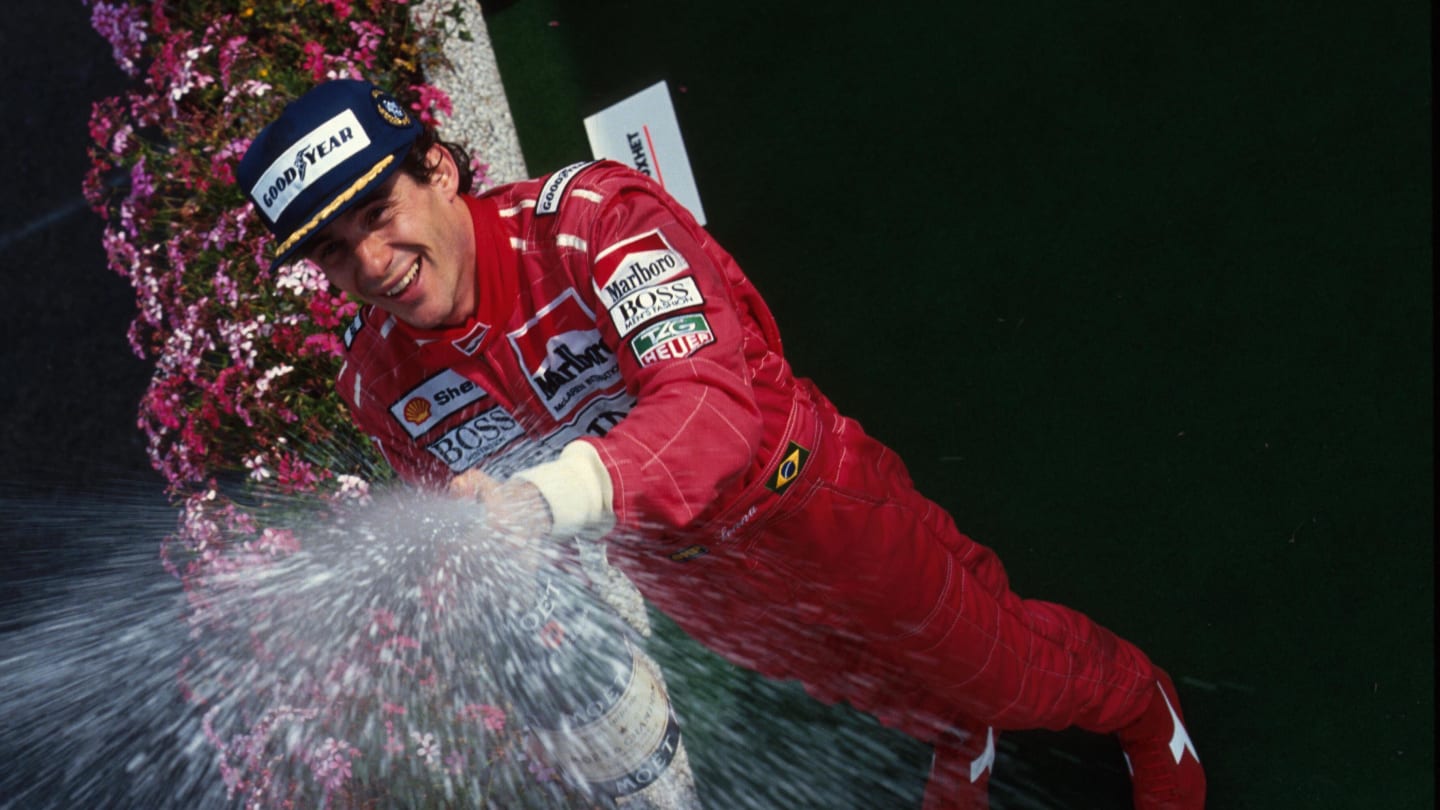
Race winner Ayrton Senna celebrates his victory on the podium at the Belgian Grand Prix, Spa, 25 August 1991
8. He never drove for Jordan again
All of a sudden the hottest property in the paddock, when Schumacher arrived at the next race in Italy less than two weeks after his debut he was in the midst of a bitter tug of war, with another team - frontrunners Benetton - vying to secure his services.
Jordan (believing they had a watertight deal) understandably fought hard to keep their man, but in the early hours of Friday morning - only hours before first practice, and after hours of negotiations and protracted legal wrangling - Flavio Briatore’s squad emerged victorious, with Benetton pilot Roberto Moreno going the other way.
Amid such a furore, another driver might have faltered, but not Schumacher. In his first race for his new team, the 22-year-old - his F1 future secured - finished fifth, one place ahead of three-time world champion team mate Nelson Piquet, whom he also out-qualified. Quite clearly, the only way was up…
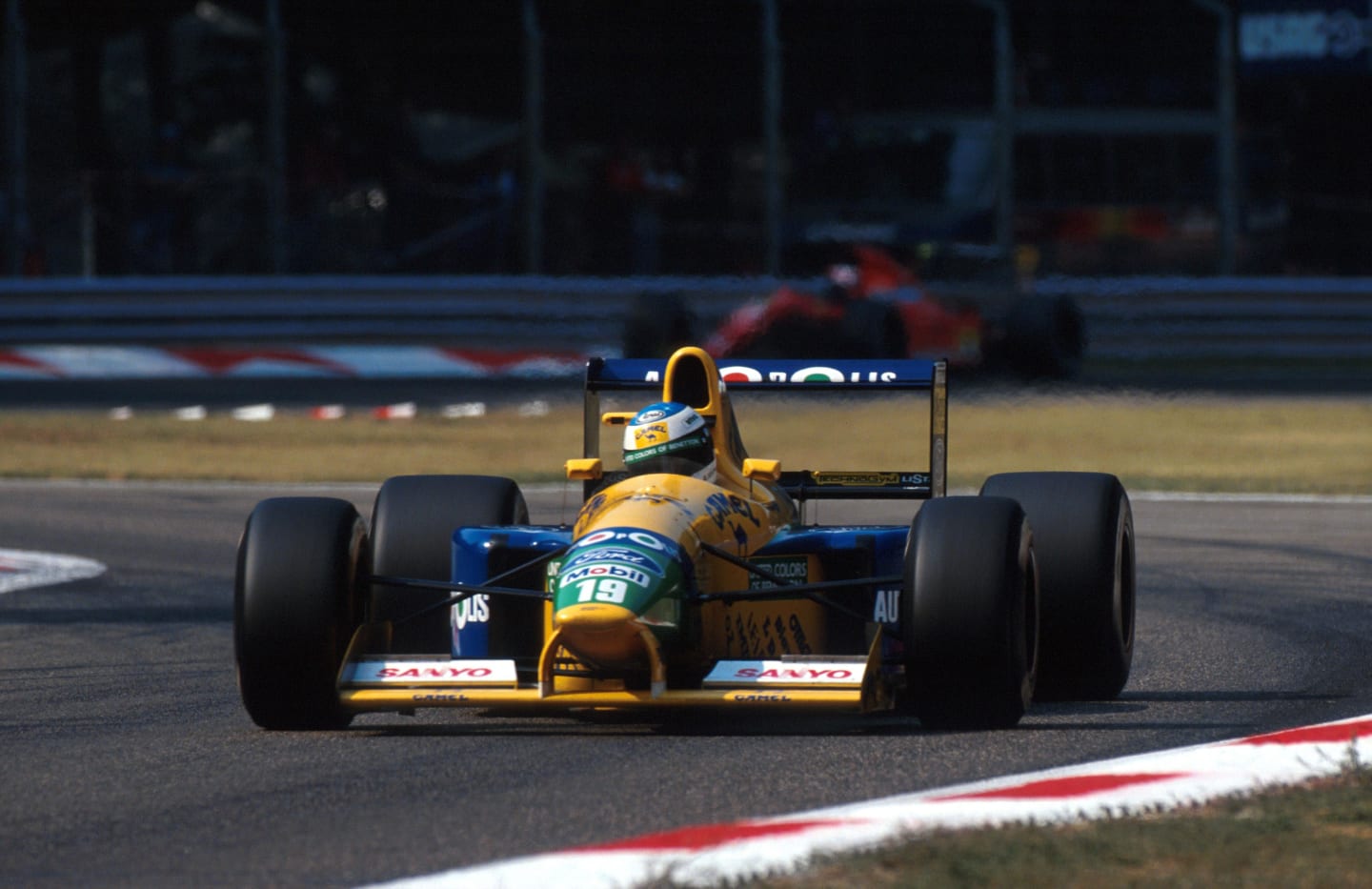
Michael Schumacher (GER) Benetton B191 finished fifth in only his second Grand Prix. Italian Grand Prix, Monza, 8 September 1991.
This week is Schumacher Week on Formula1.com, in honour of Michael Schumacher's 50th birthday. Each day we'll publish bespoke content celebrating the seven-time world champion’s historic career, so be sure to check back regularly!
This article is an updated version of one first published on Formula1.com in 2016
YOU MIGHT ALSO LIKE
News McLaren bosses hail ‘perfect weekend’ from Bahrain winner Piastri – but warn that it’s ‘a matter of time’ before ‘epic battle’ with Norris
News Vasseur urges Ferrari to ‘stay calm’ after mixed fortunes in Bahrain as he explains why Hamilton’s frustration was ‘appreciated’
News Bortoleto keen to move on from ‘challenging’ weekend in Bahrain as Hulkenberg reflects on ‘pretty dreadful’ race incident
Feature ‘One of the most gripping races in F1 history… a genuine humdinger’ – David Tremayne remembers the first Saudi Arabian GP
